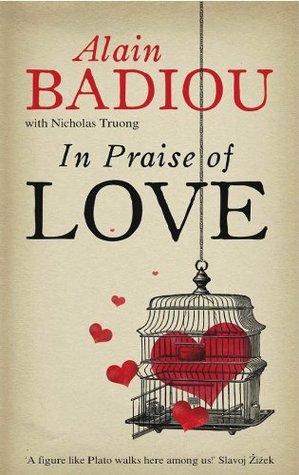More on this book
Community
Kindle Notes & Highlights
I am convinced that love cannot be a gift given on the basis of a complete lack of risk.
On the one hand, love seen as a natural extravagance of sex arouses a kind of rational suspicion. Conversely, we see an apology for love that borders on religious epiphany.
In today’s world, it is generally thought that individuals only pursue their own self-interest. Love is an antidote to that.
It is an existential project: to construct a world from a decentred point of view other than that of my mere impulse to survive or re-affirm my own identity.
We could say that love is a tenacious adventure. The adventurous side is necessary, but equally so is the need for tenacity. To give up at the first hurdle, the first serious disagreement, the first quarrel, is only to distort love. Real love is one that triumphs lastingly, sometimes painfully, over the hurdles erected by time, space and the world.
Love, particularly over time, embraces all the positive aspects of friendship but love relates to the totality of the being of the other, and the surrender of the body becomes the material symbol of that totality.
But even in their wildest delirium, lovers know that love is there, like their bodies’ guardian angel, when they wake up in the morning, when peace descends over the proof that their bodies have grasped that love has been declared.
What is universal is that all love suggests a new experience of truth about what it is to be two and not one.
People will say, why talk about great truth in respect of the quite banal fact that So and So met his or her colleague at work? That’s exactly what we must emphasise: an apparently insignificant act, but one that is a really radical event in life at a micro-level, bears universal meaning in the way it persists and endures.
To make a declaration of love is to move on from the event-encounter to embark on a construction of truth.
That is how chance is curbed: the absolute contingency of the encounter with someone I didn’t know finally takes on the appearance of destiny.
But what they are always saying is: I shall extract something else from what was mere chance. I’m going to extract something that will endure, something that will persist, a commitment, a fidelity.
It means precisely that transition from random encounter to a construction that is resilient, as if it had been necessary.
In love, fidelity signifies this extended victory: the randomness of an encounter defeated day after day through the invention of what will endure, through the birth of a world.
Everybody knows that deciding to break off such love, particularly unilaterally, is always a disaster, whatever the excellent reasons put forward to support such a move.
And that is why love is also the source of violent existential crises. Like all processes involving the search for truth.
I mean that political action tests out the truth of what the collective is capable of achieving.
The essence of politics can be subsumed in the question: what are individuals capable of when they meet, organize, think and take decisions?
Selfishness, not any rival, is love’s enemy. One could say: my love’s main enemy, the one I must defeat, is not the other, it is myself, the “myself” that prefers identity to difference, that prefers to impose its world against the world re-constructed through the filter of difference.
Christianity itself is the finest example of the use of love’s intensity towards a transcendental conception of the universal.
Christianity says: if you love each other, the whole of this loving community will approach the ultimate fount of all love that is divine transcendence itself.
That’s also another reason why the internet dating hype is fallacious. It works on the assumption that you are going to review all the possibilities on offer and take the best, in order to enjoy safe love. But life’s not like that!
In other words, in politics, where enemies do exist, one role of the organization, whatever that may be, is to control, indeed to destroy, the consequences of hatred.
That could even be a possible definition of art: art is what, at the level of thought, does complete justice to the event.
For example, in Nadja, which is a splendid illustration of the poetics of the uncertain and mysterious encounter that round the street-corner will become “l’amour fou”.
There is a work of love: it is not simply a miracle. You must be in the breech, on guard: you must be at one with yourself and the other. You most think, act and change. And then, surely, happiness follows, as the immanent reward for all that work.
That is what the theatre is, in its origins, thinking-in-the body, embodied thought.
By “communist” I understand that wich makes the held-in-common prevail over selfishness, the collective achievement over private self-interest.
While we’re about it, we can also say that love is communist in that sense, if one accepts, as I do, that the real subject of a love is the becoming of the couple and not the mere satisfaction of the individuals that are its component parts. Yet another possible definition of love: minimal communism!
The community of love is also precarious, and you also need much more than a telephone number to sustain and develop it.
Listen, you youngsters: anyone who doesn’t take love as their starting-point will never discover what philosophy is about.”
The identity cult of repetition must be challenged by love of what is different, is unique, is unrepeatable, unstable and foreign.
“Love what you will never see twice.”
It has always been the case that the loves of the upper crust have been dramatised for lower mortals.


